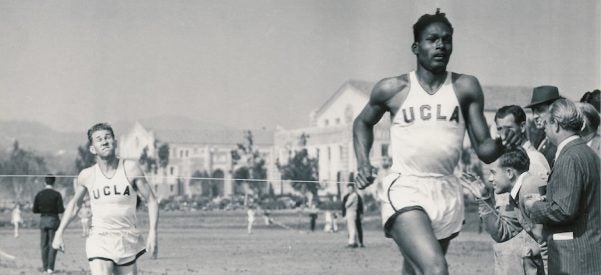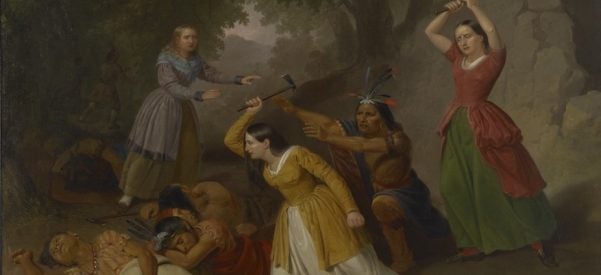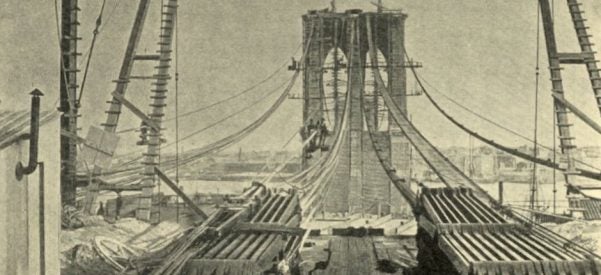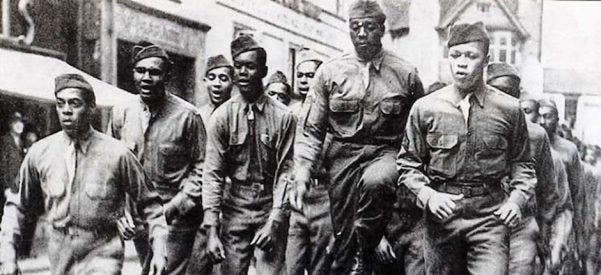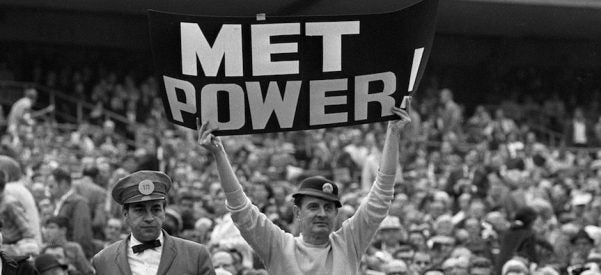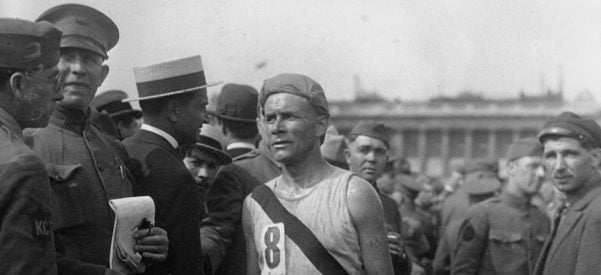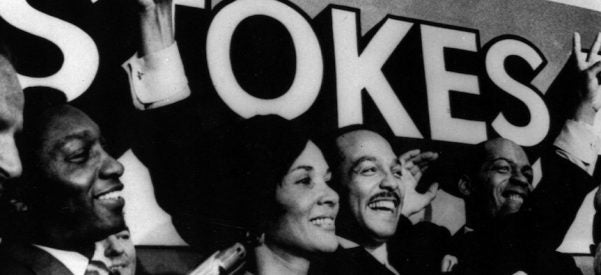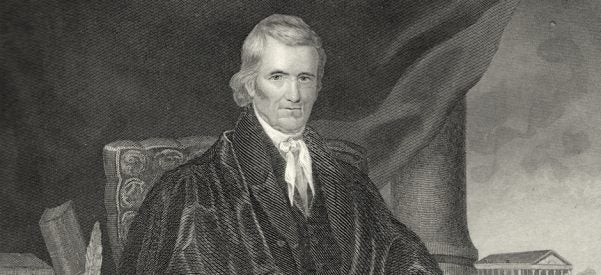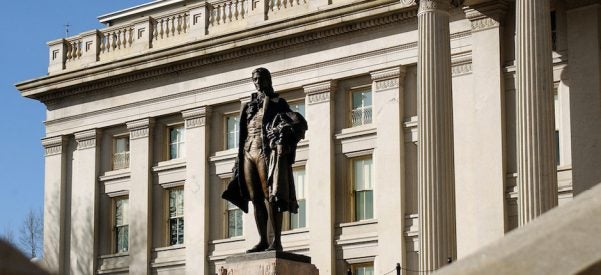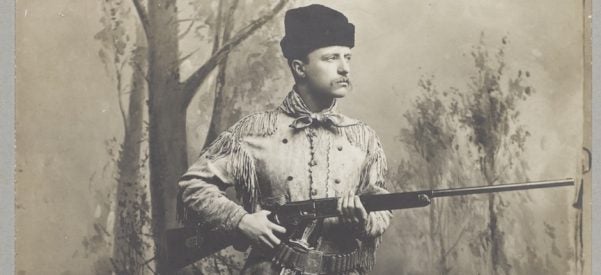How UCLA Helped Break the Color Barrier in College Athletics
Jackie Robinson and Tom Bradley Were Among Sports Stars Who Proved That Integration Made Schools More Competitive
The arrival of five athletes, all African American, on the UCLA campus in the late 1930s would prove to be a moment of destiny, not just for college sports but for the United States itself.
These five men could have been called the original Fabulous Five. And that designation was no exaggeration, because they went on to change the cultures of professional athletics, entertainment, the civil rights movement, and politics.
The athletes who played together in the 1939 school year were: …


